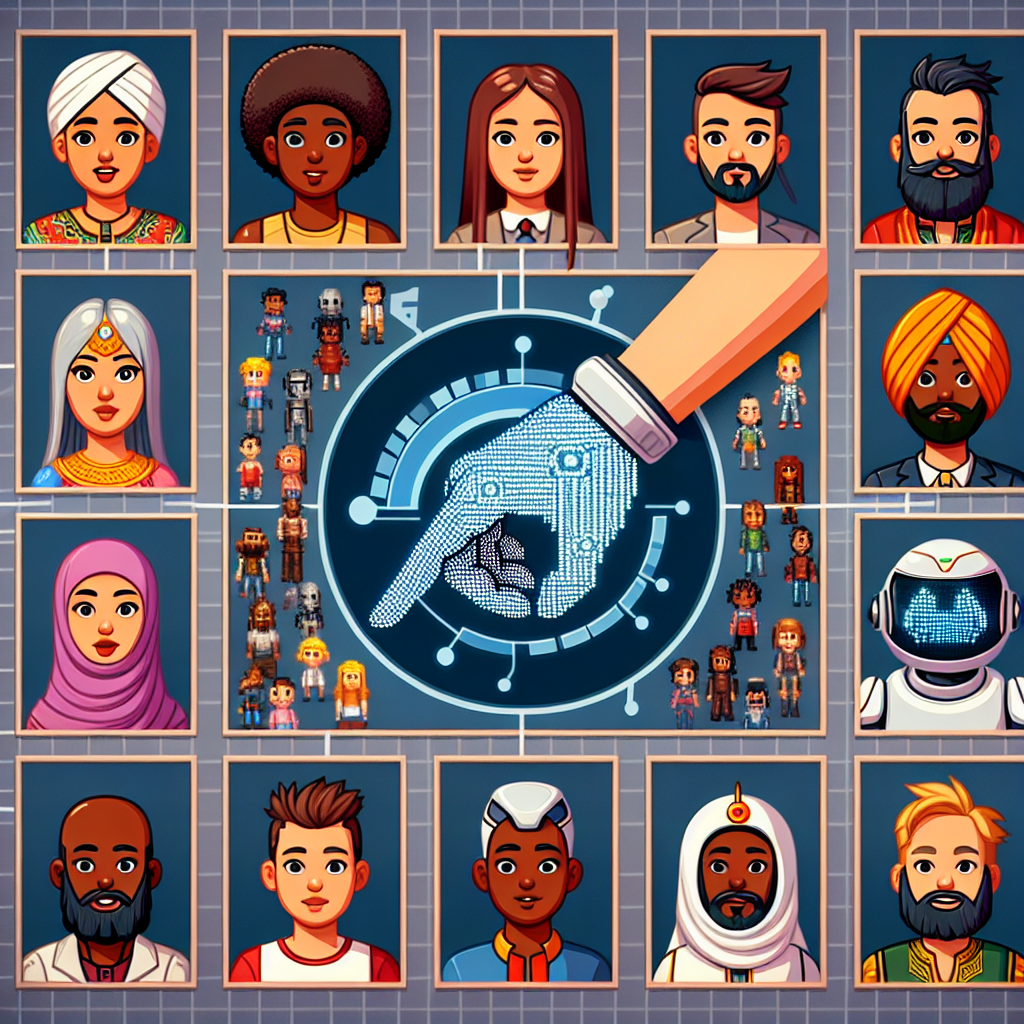Artificial Intelligence (AI) has become an integral part of many industries, including the video game industry. One area where AI can make a significant impact is in improving diversity and representation in video games. In recent years, there has been a growing awareness of the importance of diversity and representation in media, including video games. AI can help game developers create more inclusive and representative games by analyzing data, predicting player behavior, and generating diverse content.
One of the key ways AI can improve diversity and representation in video games is through character creation. AI algorithms can be used to generate diverse characters that represent a wide range of backgrounds, cultures, and identities. By analyzing data on player preferences and behavior, AI can create characters that resonate with a diverse audience and reflect the world we live in. This can help break stereotypes and promote inclusivity in video games.
AI can also be used to improve the representation of marginalized groups in video games. By analyzing data on player demographics and behavior, AI can help game developers understand the needs and preferences of underrepresented groups. This can lead to the creation of games that are more inclusive and accessible to a wider audience. AI can also help identify biases and stereotypes in games and suggest ways to address them, making games more diverse and representative.
Another way AI can improve diversity and representation in video games is through content generation. AI algorithms can be used to create diverse and inclusive content, such as dialogue, storylines, and settings. By analyzing data on player behavior and preferences, AI can generate content that appeals to a diverse audience and reflects a variety of perspectives. This can help create more engaging and immersive gaming experiences for players from different backgrounds and identities.
In addition to character creation and content generation, AI can also help improve diversity and representation in video games through player engagement. By analyzing data on player behavior and preferences, AI can personalize gameplay experiences for individual players, making games more inclusive and accessible to a wider audience. AI can also help game developers create more diverse and representative communities by connecting players with similar interests and backgrounds. This can lead to a more inclusive and welcoming gaming environment for players from all walks of life.
Overall, AI has the potential to play a crucial role in improving diversity and representation in video games. By analyzing data, predicting player behavior, and generating diverse content, AI can help game developers create more inclusive and representative games that appeal to a wide range of players. This can lead to a more diverse and inclusive gaming industry that reflects the diversity of our society.
FAQs:
Q: How can AI help improve diversity and representation in video games?
A: AI can help improve diversity and representation in video games by analyzing data, predicting player behavior, and generating diverse content. This can lead to the creation of games that are more inclusive and representative of a wide range of backgrounds, cultures, and identities.
Q: Can AI help address biases and stereotypes in video games?
A: Yes, AI can help identify biases and stereotypes in games and suggest ways to address them. By analyzing data on player behavior and preferences, AI can help game developers create more diverse and representative games that break stereotypes and promote inclusivity.
Q: How can AI personalize gameplay experiences for individual players?
A: AI can personalize gameplay experiences for individual players by analyzing data on player behavior and preferences. This can lead to more engaging and immersive gaming experiences that appeal to a diverse audience and reflect a variety of perspectives.
Q: What are some examples of how AI has been used to improve diversity and representation in video games?
A: AI has been used to create diverse characters, generate inclusive content, and personalize gameplay experiences for individual players. By analyzing data and predicting player behavior, AI can help game developers create more inclusive and representative games that appeal to a wide range of players.

